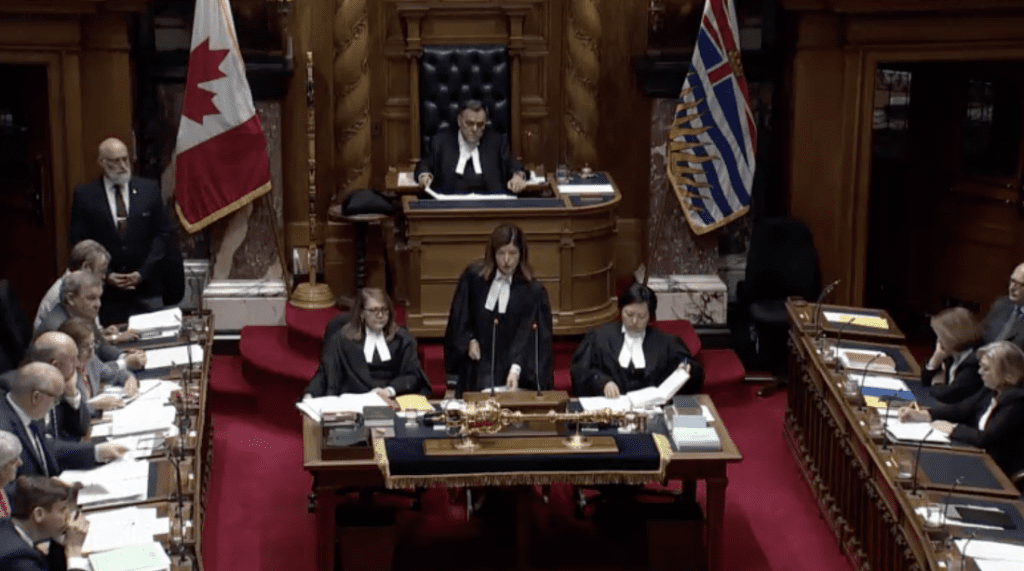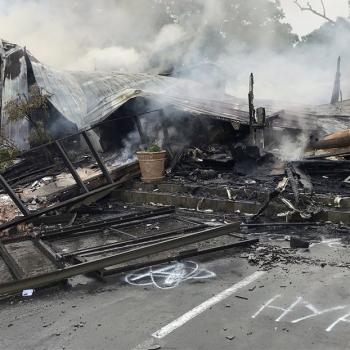Over the past year, the British Columbia Humanist Association (BCHA) has been taking a close look at the traditional practice of praying before each session in the BC Legislature.

After their examinations found that the overwhelming majority of prayers recited were Christian, the BCHA called for an end to the practice. The Legislature compromised by amending their standing orders to offer space for “prayers and reflections” at the beginning of each day’s work, a move that BCHA called “a step forward for an institution that is often incredibly reluctant to change.”
Their work, however, continues.
In an effort to make the standing orders still more inclusive and reflective of the reality of Canadian society, the BCHA has released a new report analyzing representation of British Columbia’s Indigenous people in the Legislature’s traditional prayers.
That’s important work for humanists, argues BCHA executive director Ian Bushfield, in part because the oppression of Indigenous peoples has historically been bound up with religion:
We document how legislative prayers were started in the 16th Century to propagate the Anglican faith. They were imported to these lands by European settlers who imposed Christianity on Indigenous peoples as a core element of colonialism.
While it’s been claimed that BC’s legislative prayers are more interdenominational, and therefore more open to Indigenous voices, we show that the movement in this direction has been slow and piecemeal.
There has been some movement towards the inclusion of more Indigenous content over time, but it’s far from adequate. The BCHA’s research found that only 6% of prayers given in the time period studied (between 2003 and 2019) contained even a hint of content that acknowledged the original occupants of the colonized land known as British Columbia.
What’s more, the vast majority of that content contained only a single word — far from reflective of the vastness of Indigenous tradition, culture, and language that has historically existed in the province.
The fact that most of that content came from the same two Members, one of whom has since retired from politics, further highlights how much more work remains to make the BC Legislature truly and broadly inclusive of Indigenous people.
Research also showed that the content was unevenly spread between parties — the New Democratic Party (NDP) provided the majority of the Indigenous content — and that none of it was delivered by legislators who actually hail from any Indigenous tradition (of which only six have ever existed, notably including the first Indigenous person to sit in any of Canada’s provincial parliaments).
In light of their findings, the BCHA renewed their call for “prayers and reflections” to be replaced in full or in part with a land acknowledgment to be recited as a matter of course at the beginning of each legislative session. Says Dr. Teale Phelps Bondaroff, the report’s lead author:
The BC Legislature starting without a territorial acknowledgement is a serious omission. Incorporating a single Indigenous word or reference into a prayer does not give Indigenous peoples the prominence or recognition they deserve. The current practice is in no way a substantive or meaningful move towards reconciliation, nor does it address the need for a meaningful territorial acknowledgement.
Land acknowledgments have become part of the political landscape in Canada, particularly in unceded territory — that is, land that was never officially transferred to colonists in by land purchase or treaty. That includes parts of Quebec and eastern Ontario (including the nation’s capital, Ottawa) and most of British Columbia.
Many consider it an important (if insufficient) step toward reconciliation, which is a powerful argument in favor of including it as a matter of course in the legislature’s standing orders.
Speaking of the practice of land acknowledgments generally, First Nations scholar Sheila Cote-Meek notes that it takes work to get them right. Mispronunciations and errors come across as careless and disrespectful, and diminish the practice’s value:
It has to go beyond just a tokenized gesture. As you embed a process, it can become just another everyday thing you do that’s not as meaningful as it could have been. [However,] the idea that it’s become a symbolic gesture is giving people an excuse not to do it. And any excuse not to acknowledge Indigenous people, some people will take it.
BCHA calls on legislators to work closely with British Columbia’s First Nations to develop appropriate language for any proposed acknowledgment of the unceded territories upon which they conduct their business.
So why is this an issue for secular humanists? Bushnell put it best in an e-mail to Friendly Atheist:
Humanism is about recognizing and empowering the dignity of all peoples, something that cannot occur when the first peoples of these lands are largely excluded from a practice that sits at the heart of our government.
Take a look at the document — just 26 pages long and well worth the read — here.




It’s Moving Day for the Friendly ..."
It’s Moving Day for the Friendly ..."
It’s Moving Day for the Friendly ..."
It’s Moving Day for the Friendly ..."